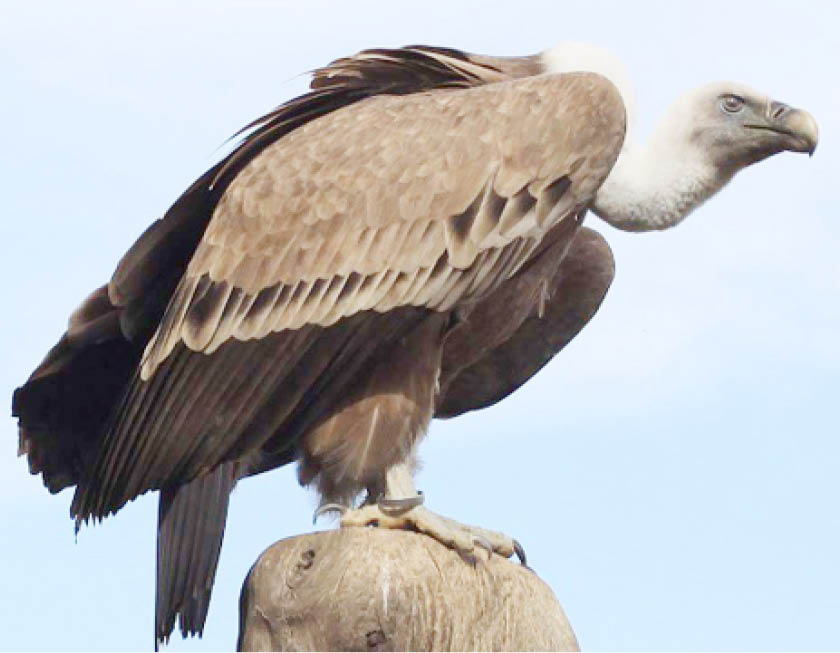Nigeria is losing free ecological services as vultures go extinct in the country.
The carrion feeders are a vital part of the ecosystem. They provide important ecosystem services that contribute to human health and wellbeing.
These services include removing carcasses and other organic waste from the environment, thereby, reducing the spread of diseases and contamination of water supplies.
Vultures, despite these services they render naturally are, however, faced with general population decline worldwide with a seven per cent decline yearly for the past three decades
The International Union for Conservation of Nature’s (IUCN) red list of threatened species said vultures are among the most threatened group of migratory birds in the world.
As Nigeria joined the rest of the world to commemorate the International Vulture Awareness Day (IVAD) on the first Saturday of September, a day set aside by the global body to highlight the importance of vultures and their conservation, it was observed that the birds are fast going into extinction.
The IVAD commemoration, which was organized in Nigeria by the Nigerian Conservation Foundation (NCF) for Egyptian Vulture New Life Project in Taraba, Ibadan, Enugu, Sokoto and Zamfara states, was to educate people on the dire need to preserve these creatures for the survival of humans.
Among efforts, to protect the endangered bird, a project on Egyptian Vulture (EV), ‘New Life Project’ was launched in 2017, with support from the European Union Life programme aimed to reduce adult mortality, minimize loss of adults due to deliberate or accidental poisoning and electrocution, collisions and mitigate threats, among others.
A document obtained by Daily Trust showed that in October 2018, the EV team surveyed over eight local governments in Yobe State, covering more than 1,436 kilometres, without coming across any Egyptian vulture.
Similarly, in November 2018, two teams independently conducted a road transect survey of 2,783 kilometres in Jigawa, and 2,110 kilometres in Yobe State without a single sighting of the Egyptian vulture.
Again, the team visited sites that should typically have vultures, including abattoirs, slaughter houses, slabs, and rubbish dumps.
Power lines surveys were also conducted in search for any evidence of electrocution as a problem for this species in 10 local governments in Jigawa and 9 LGAs in Yobe State, yet no sighting of the Egyptian vulture was recorded.
More trips were also conducted in December 2018 in areas around Zamfara and Sokoto states, up to some villages bordering Kebbi, covering over 2,000 kilometres still with no sighting of any Egyptian vulture, even though an individual hooded vulture was sighted in Shuni.
During the course of these surveys, the team also interacted with local communities and many people reported that vultures are now a very rare sight. Many residents said they last saw vultures 20 to 30 years ago.
A lecturer in the Biological Sciences Department, Federal University Dutse, Jigawa State, Abubakar Surajo, in his presentation titled ‘Importance, Threats and Conservation/Protection of Egyptian/Other Species of Vultures in Northern Nigeria’, said the population of the Egyptian vulture has severely declined in Nigeria.
He attributed threats to the vultures to include poisoning, habitat loss, agricultural practices, direct shooting and persecution.
Surajo explained that when the vultures are no more, “We will no longer enjoy the free ecological service the vultures provide; dead animals will pollute water, attract flies and disease-carrying bugs as well as lead to loss of cultural value and heritage.”
To avoid complete extinction of the birds, he said there was need to discourage the unsustainable practice of killing and use of vulture body parts.
While advising that plant-based alternative for medicine should be adopted, he called for sensitization campaigns about the critical roles of vultures and attitudinal change about the birds.
Also speaking, the Director General of NCF, Dr. Muhtari Aminu-Kano, said Africa is home to seven migratory vulture species of Egyptian, White-headed Vulture, Hooded Vulture, White-backed Vulture, Ruppell’s Vulture, Cape Vulture and Lappet-faced Vulture.
Dr Aminu-Kano, who was represented by the NCF Head, Communications, Oladapo Soneye, noted that the past 30 years have seen significant vulture decline across Africa, especially in West and East Africa, with recent assessments showing population decline of 50 to 96 per cent for the six West African species.
“Studies have shown that carcasses take longer to decompose which has implications for the spread of diseases in the wild, potentially affecting domestic animals and humans. Absence of vultures to clear carcasses will have hazardous effect on humans and the economy of nations,” he said.
While noting that the IVAD is marked to educate everyone around on the dire need to preserve these creatures for the survival of humans, he urged the participants to pay attention, so as to become very knowledgeable in the vulture conservation message and go ahead to propagate same.

 Join Daily Trust WhatsApp Community For Quick Access To News and Happenings Around You.
Join Daily Trust WhatsApp Community For Quick Access To News and Happenings Around You.


